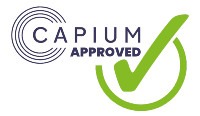It’s been another challenging year for businesses. With the pandemic still causing widespread disruption, you’d be forgiven for not having completed your tax return yet. That said, the deadline is fast approaching. Getting your self-assessment done now will allow you to relax and enjoy Christmas, knowing exactly what to expect when your tax bill arrives.
The online self-assessment is simpler than the old paper form, but it’s still easy to get caught out. Here are a few tips to make the process as smooth as possible.
Make sure you are registered
This may sound obvious but, if it’s your first time filling out a self-assessment, you need to create an account with HMRC. You can do this by registering for a Government Gateway account on the gov.uk website. You then need to apply for a UTR (Unique Taxpayer Reference) in order to complete a self-assessment. This is sent via post and can take up to ten days, so you should do this as soon as possible.
Be thorough with your expenses
Some of the most common self-assessment mistakes occur when filling out the expenses section, if you are self-employed. Overclaiming can have serious legal ramifications, but that doesn’t mean you should be shy about declaring allowable expenses. A recent study found that small UK businesses are losing £5.6 billion a year in unclaimed expenses. Commonly overlooked expenses include:
- Uniforms and protective clothing for yourself and your employees
- Advertising costs
- Legal fees
- Fuel and maintenance for company vehicles
- Office supplies
- Utilities and council tax if you work from home
You do not need to send proof of expenses with your tax return, but HMRC may ask for this at a later date. Make sure you have copies of all receipts, invoices and bank statements, preferably in an electronic form. If you haven’t already, it may be a good idea to invest in some automated accounting software. This will make it much easier to calculate and prove your expenses in future.
Remember to include interest in your income
Another common mistake is forgetting to include interest payments when calculating your income. Any interest that you’ve earned on bank or building society savings must be declared. You should also include any interest you’ve earned from loans or income you have received from company dividends if applicable. The only exception is ISA interest, which is always tax-free.
Claim for private pension contributions
Many taxpayers don’t realise that they are eligible for tax relief on private pension contributions. If you pay income tax at 20%, this money is normally added automatically to your pension pot. However, if you pay a higher rate of income tax, you will need to claim the additional relief on your self-assessment. This money won’t be added to your pension pot, but you will receive it in the form of a tax reduction or rebate.
Don’t be afraid to ask for help
Just because it’s called a self-assessment doesn’t mean you have to go it alone. If you’re struggling to fit in your tax return among other business commitments, there’s no shame in asking for help.
We’ve prepared countless self-assessments for our clients so we know the process inside out.
Our expert accountants can take care of everything, allowing you to focus on getting your business ready for the new year. We may even be able to reduce your tax bill by spotting expenses that you’ve missed. Get in touch today to get started.


